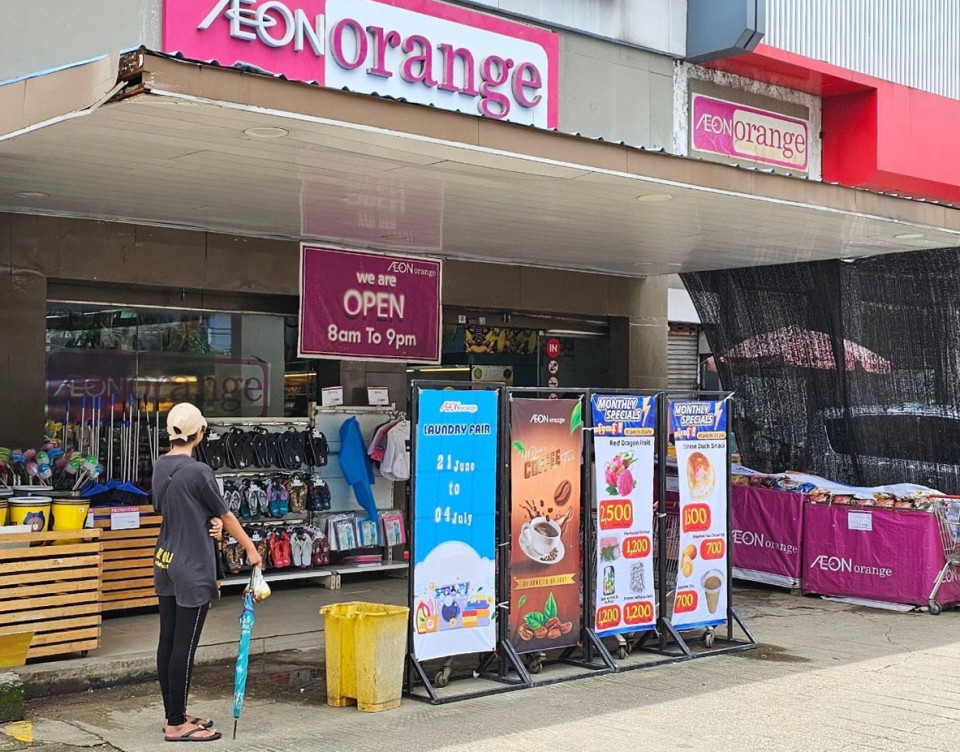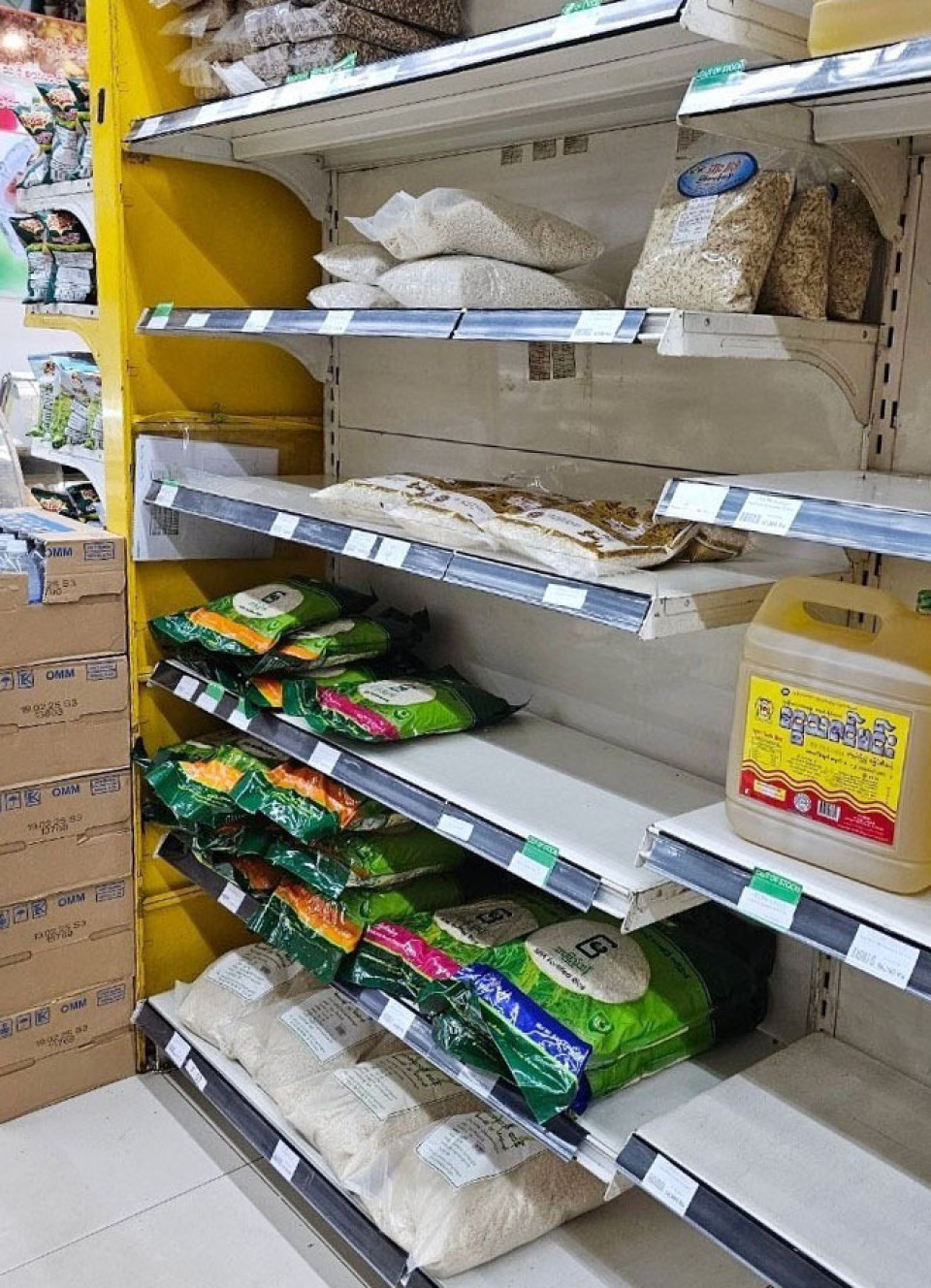Japanese supermarket chain operator Aeon Co. said Monday that a senior official of a joint venture in Myanmar has been detained, with the military junta saying he was held along with 10 others for allegedly violating rules on the selling price of rice.
Aeon named the official as Hiroshi Kasamatsu, 53, an employee of Aeon Orange Co., adding it would cooperate with local authorities' investigations while seeking support from the Japanese Embassy in Myanmar.
According to the junta, which has ruled the country since ousting its civilian government in a February 2021 coup, Kasamatsu and 10 Myanmar nationals have been held for selling rice at a price around 50 percent to 70 percent higher than the level mandated by the authorities.

The detention of a Japanese-affiliated company official in Myanmar came despite Japan having not imposed sanctions on the Southeast Asian country's military or associated individuals and groups following the coup, unlike Western countries. The incident could cast a shadow over other businesses linked to Japan in the country.
The Japanese embassy said a lawyer who met Kasamatsu at a police station in Yangon where he is believed to have been interrogated told them he has no health issues.
"We are in the process of confirming the facts, but we are calling for his early release. We will also provide necessary support" to Aeon Orange, the embassy said.

Japan's top government spokesman Yoshimasa Hayashi told a regular press conference that the government is urging Myanmar's authorities to release the official at the earliest and communicating with the company.
Aeon Orange was established in 2016 with local retailer Creation Myanmar Group of Companies.
The situation that developed following the coup, which saw widespread opposition to junta rule, evolved into a violent conflict between the junta and pro-democracy forces as well as ethnic minority rebels, ravaging Myanmar's economy.
The junta has sought to stabilize the market by fixing the prices of necessary goods, including rice, and setting a reference exchange rate for Myanmar's currency, the kyat, which has weakened significantly since the coup. However, there has been a widening gap between the official rate and prices and the reality on the ground.










